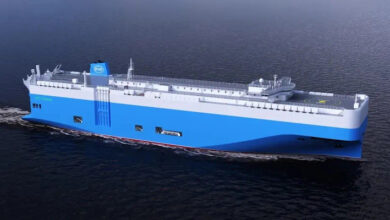An Ongoing Fraud In Pakistan’s Automobile Industry – OpEd – Eurasia Review

For decades, Pakistan’s automobile industry has been mired in multi-billion dollar frauds that have hindered its growth, impeded economic progress, and perpetuated unemployment. Despite efforts to regulate and monitor the industry, the persistence of corruption and illegal activities continues to prevent the realization of its full potential.
The series of frauds within the industry is extensive, involving the illicit importation of vehicles, non-compliance with localization requirements, and the exploitation of legal loopholes. The Pakistan Engineering Board, tasked with overseeing standards and practices, struggles to enforce regulations effectively. Consequently, the prices of vehicles in Pakistan remain inflated, and the benefits of a robust automobile sector, such as job creation and economic development, are left unrealized. The frauds are not limited to small-scale operations. Major players in the industry have been found guilty of importing vehicles without proper authorization, thereby evading taxes and duties. These activities have caused significant financial losses to the national exchequer and have distorted the competitive landscape of the industry. Moreover, the influx of substandard vehicles compromises the safety and satisfaction of consumers, further eroding trust in the sector.
If the Pakistan Engineering Board were to enforce regulations strictly and ensure compliance with localization policies, the impact on the industry and the economy could be transformative. By adhering to a merit-based system, the cost of vehicles could be reduced by half within a few years, making them more affordable for the general population. Additionally, millions of jobs could be generated as new industries emerge to support the manufacturing of vehicle parts locally. A merit-based system would ensure that only companies meeting stringent quality and localization criteria are allowed to operate. This would foster healthy competition, encourage innovation, and attract foreign investment. Furthermore, a transparent and accountable regulatory framework would deter fraudulent activities and instill confidence among stakeholders.
Currently, many companies exploit the system by importing thousands of vehicles without proper authorization, sending billions of dollars out of the country through the State Bank. These vehicles often fail to meet the quality standards of their countries of origin, yet they flood the Pakistani market, undermining local production and quality control efforts. The Pakistan Engineering Board’s lax enforcement exacerbates the problem, allowing substandard vehicles to circulate freely. The economic implications of this non-compliance are profound. The outflow of billions of dollars weakens the national currency, exacerbates the trade deficit, and hampers economic growth. Moreover, the lack of investment in local manufacturing stifles industrial development and limits job creation. As a result, Pakistan’s automobile industry remains dependent on imports, unable to leverage its full potential for economic development.
Pakistani law stipulates that a new company can import only 100 vehicles initially, showcasing them in various showrooms to demonstrate their features. Within five years, 70% of the finished vehicles should be imported as Completely Knocked Down (CDK) kits, while 30% of the parts should be produced locally. Within seven years, at least 70% of the parts must be manufactured in Pakistan to foster local industry and job creation.
However, the previous regime saw significant breaches of these regulations. For instance, a close associate of the then Prime Minister imported 10,000 vehicles directly into Pakistan, bypassing legal limits and sending hundreds of millions of dollars abroad. This blatant violation not only hurt the economy but also set a precedent for other foreign companies to follow suit, further destabilizing the industry. The preferential treatment of certain companies undermines the rule of law and creates an uneven playing field. It discourages legitimate businesses from investing in the sector, knowing they cannot compete with those enjoying undue advantages. This perpetuates a cycle of corruption and inefficiency, preventing the industry from achieving sustainable growth.
In contrast, India has successfully localized its automobile industry, with millions employed and vehicles being manufactured with 100% local parts. This achievement highlights the potential benefits for Pakistan if similar standards are enforced. The local assemblers’ cartel in Pakistan, however, actively resists these changes to maintain their monopoly and continue reaping profits from an unregulated market. India’s success story serves as a model for Pakistan. The Indian government’s proactive policies, investment in infrastructure, and support for local manufacturers have transformed the automobile industry into a global powerhouse. By contrast, Pakistan’s reliance on imported vehicles and parts stymies innovation and growth. Learning from India’s experience, Pakistan can implement policies that incentivize local production, attract foreign investment, and create a thriving automotive ecosystem.
To combat this ongoing fraud and stabilize the industry, the Pakistani government must enforce stringent regulations on local assemblers, compelling them to achieve 100% localization. Such measures would not only create employment opportunities but also ensure the availability of affordable and high-quality vehicles for the Pakistani population.
Additionally, preventing the illegal outflow of billions of dollars would bolster the national economy. Implementing these changes requires a multi-faceted approach. First, the government must strengthen the Pakistan Engineering Board, equipping it with the resources and authority to enforce regulations effectively. This includes regular audits, inspections, and penalties for non-compliance. Second, incentives should be provided to companies that invest in local manufacturing, such as tax breaks, subsidies, and access to finance. Third, public awareness campaigns can educate consumers about the benefits of locally manufactured vehicles, fostering demand for domestic products.



